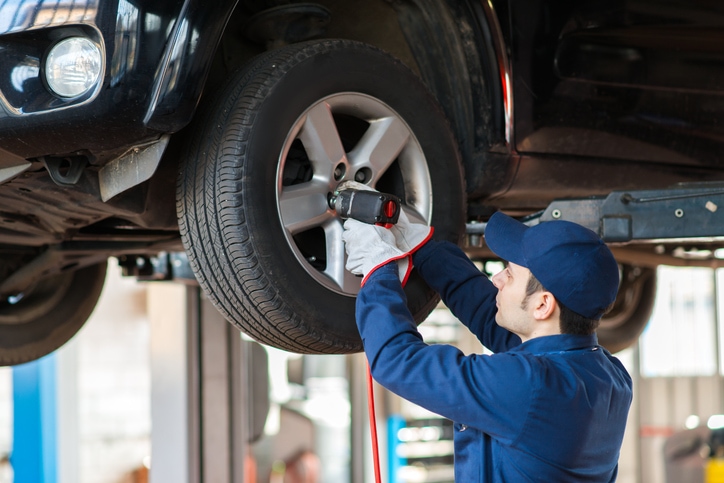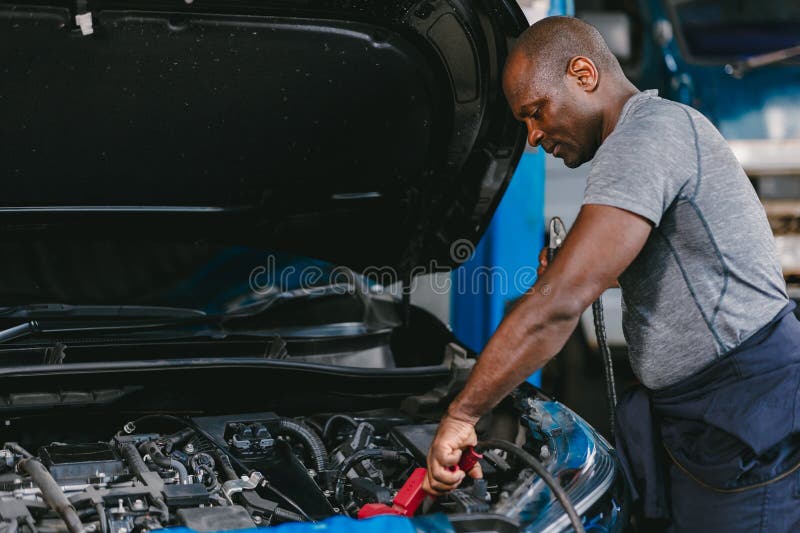All Categories
Featured
Typically ignored, the timing belt plays a crucial function in maintaining your engine synchronized and running at peak performance. In this post, we'll explore the significance of timing belt substitute and why it's vital to your engine's durability.
What Is a Timing Belt and Just How Does It Function? The timing belt is a rubber or enhanced composite belt that connects the crankshaft to the camshaft in your engine. These 2 components should run in sync for the engine's valves to open up and shut at the correct times during the combustion cycle. The timing belt controls this synchronization, ensuring that the shutoffs and pistons do not collide.
![]()
As your engine runs, the timing belt continuously relocates to keep these elements straightened. Gradually, the belt undertakes wear and tear from rubbing, warmth, and engine resonances. If it damages or comes to be loose, the crankshaft and camshaft will certainly no longer be integrated, causing engine misfires, loss of power, or, in the worst instance, extreme engine damage.
Why Timing Belt Replacement Is Vital. Avoids Serious Engine Damages: If the timing belt breaks while the engine is running, the pistons can ram the shutoffs, causing bent shutoffs, harmed pistons, or perhaps a broken engine block. This kind of damages typically requires extensive and pricey repairs or an entire engine replacement. Replacing the timing belt prior to it falls short is a simple and affordable method to stay clear of such disastrous consequences.
![]()
Guarantees Smooth Engine Procedure: A well-maintained timing belt aids keep your engine running smoothly by maintaining the appropriate synchronization between the crankshaft and camshaft. When the timing belt is broken or extended, the timing of the engine's valves might be off, creating engine misfires, harsh idling, or stalling. Changing the timing belt at the recommended period guarantees that the engine operates as it was designed to, enhancing performance and effectiveness.
Saves You Money: Although replacing the timing belt may look like a substantial in advance expenditure, it's much more affordable than the cost of repairing or replacing a harmed engine. The labor included in replacing the timing belt is a lot less pricey than repairing engine parts that are harmed as a result of a broken belt. Normal timing belt replacement can save you countless bucks over time by preventing engine failure and costly repair work.
Stops Unforeseen Breakdowns: If your timing belt breaks unexpectedly while you're driving, it can leave you stranded and require expensive towing. In the most awful cases, it can trigger a full engine failure that provides your auto unusable. By changing the timing belt according to the maker's guidelines, you lower the threat of unexpected breakdowns and guarantee your lorry continues to be trustworthy throughout day-to-day driving and lengthy trips.
When Should You Change Your Timing Belt? The timing belt does not last forever, and its replacement timeline can differ depending upon the make and model of your car. Many suppliers suggest changing the timing belt every 60,000 to 100,000 miles. It's important to consult your automobile's owner's guidebook for particular guidelines, as some engines may need earlier or later on substitutes.
If you're unsure about the condition of your timing belt, indicators that it might require replacing include unusual engine sound (such as ticking or slapping audios), trouble beginning the engine, or poor engine efficiency. If necessary., a specialist technician can check the timing belt for wear and tear and change it.
Conclusion. The timing belt is a vital part of your automobile's engine, and its appropriate upkeep can save you from costly repair services and engine damage. Routinely replacing the timing belt at the maker's recommended intervals assists make sure smooth engine procedure, avoids unexpected breakdowns, and inevitably prolongs the life of your engine. Do not ignore this crucial upkeep task-- by remaining on top of timing belt substitute, you're purchasing the long-term wellness of your vehicle.
What Is a Timing Belt and Just How Does It Function? The timing belt is a rubber or enhanced composite belt that connects the crankshaft to the camshaft in your engine. These 2 components should run in sync for the engine's valves to open up and shut at the correct times during the combustion cycle. The timing belt controls this synchronization, ensuring that the shutoffs and pistons do not collide.

As your engine runs, the timing belt continuously relocates to keep these elements straightened. Gradually, the belt undertakes wear and tear from rubbing, warmth, and engine resonances. If it damages or comes to be loose, the crankshaft and camshaft will certainly no longer be integrated, causing engine misfires, loss of power, or, in the worst instance, extreme engine damage.
Why Timing Belt Replacement Is Vital. Avoids Serious Engine Damages: If the timing belt breaks while the engine is running, the pistons can ram the shutoffs, causing bent shutoffs, harmed pistons, or perhaps a broken engine block. This kind of damages typically requires extensive and pricey repairs or an entire engine replacement. Replacing the timing belt prior to it falls short is a simple and affordable method to stay clear of such disastrous consequences.

Guarantees Smooth Engine Procedure: A well-maintained timing belt aids keep your engine running smoothly by maintaining the appropriate synchronization between the crankshaft and camshaft. When the timing belt is broken or extended, the timing of the engine's valves might be off, creating engine misfires, harsh idling, or stalling. Changing the timing belt at the recommended period guarantees that the engine operates as it was designed to, enhancing performance and effectiveness.
Saves You Money: Although replacing the timing belt may look like a substantial in advance expenditure, it's much more affordable than the cost of repairing or replacing a harmed engine. The labor included in replacing the timing belt is a lot less pricey than repairing engine parts that are harmed as a result of a broken belt. Normal timing belt replacement can save you countless bucks over time by preventing engine failure and costly repair work.
Stops Unforeseen Breakdowns: If your timing belt breaks unexpectedly while you're driving, it can leave you stranded and require expensive towing. In the most awful cases, it can trigger a full engine failure that provides your auto unusable. By changing the timing belt according to the maker's guidelines, you lower the threat of unexpected breakdowns and guarantee your lorry continues to be trustworthy throughout day-to-day driving and lengthy trips.
When Should You Change Your Timing Belt? The timing belt does not last forever, and its replacement timeline can differ depending upon the make and model of your car. Many suppliers suggest changing the timing belt every 60,000 to 100,000 miles. It's important to consult your automobile's owner's guidebook for particular guidelines, as some engines may need earlier or later on substitutes.
If you're unsure about the condition of your timing belt, indicators that it might require replacing include unusual engine sound (such as ticking or slapping audios), trouble beginning the engine, or poor engine efficiency. If necessary., a specialist technician can check the timing belt for wear and tear and change it.
Conclusion. The timing belt is a vital part of your automobile's engine, and its appropriate upkeep can save you from costly repair services and engine damage. Routinely replacing the timing belt at the maker's recommended intervals assists make sure smooth engine procedure, avoids unexpected breakdowns, and inevitably prolongs the life of your engine. Do not ignore this crucial upkeep task-- by remaining on top of timing belt substitute, you're purchasing the long-term wellness of your vehicle.
Latest Posts
Enjoy Bayside Style at Deauville Inn's Sunset Deck
Published Apr 19, 25
1 min read
Montclare Auto Repair: A Reliable Auto Service Provider in Montclare
Published Apr 19, 25
2 min read
NAPA AutoCare Certified: Rely on Montclare Auto Repair for Excellence
Published Apr 18, 25
2 min read
More
Latest Posts
Enjoy Bayside Style at Deauville Inn's Sunset Deck
Published Apr 19, 25
1 min read
Montclare Auto Repair: A Reliable Auto Service Provider in Montclare
Published Apr 19, 25
2 min read
NAPA AutoCare Certified: Rely on Montclare Auto Repair for Excellence
Published Apr 18, 25
2 min read